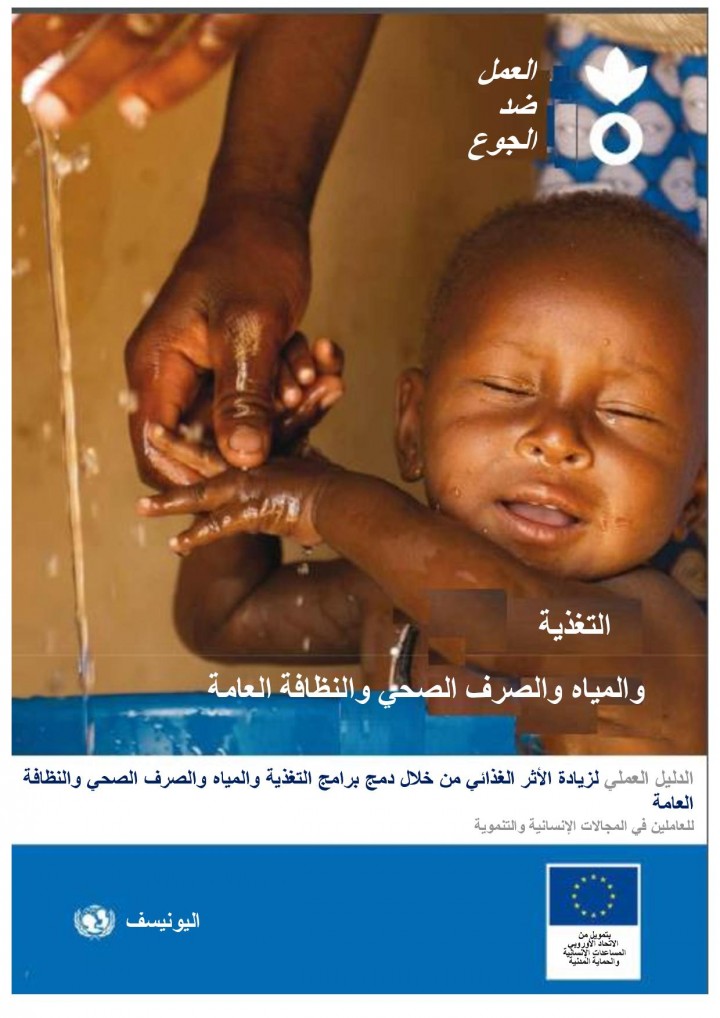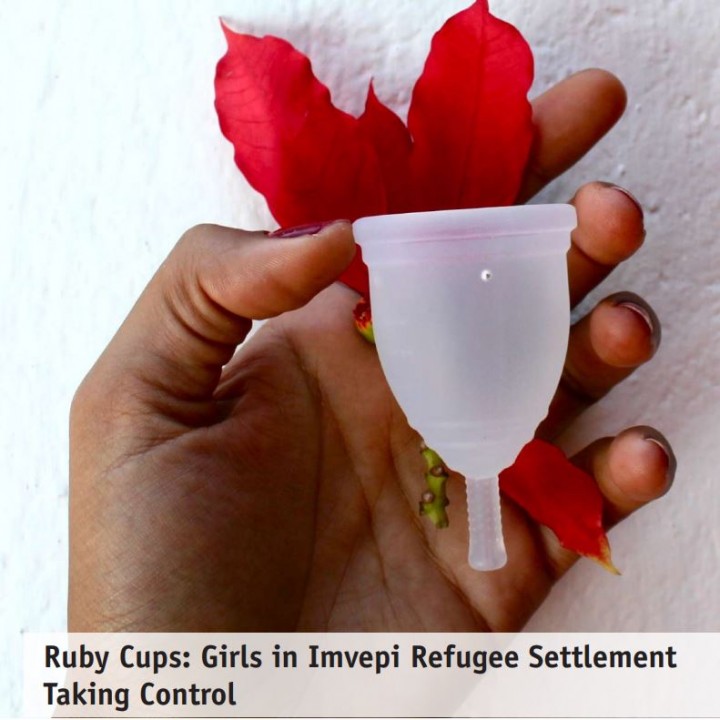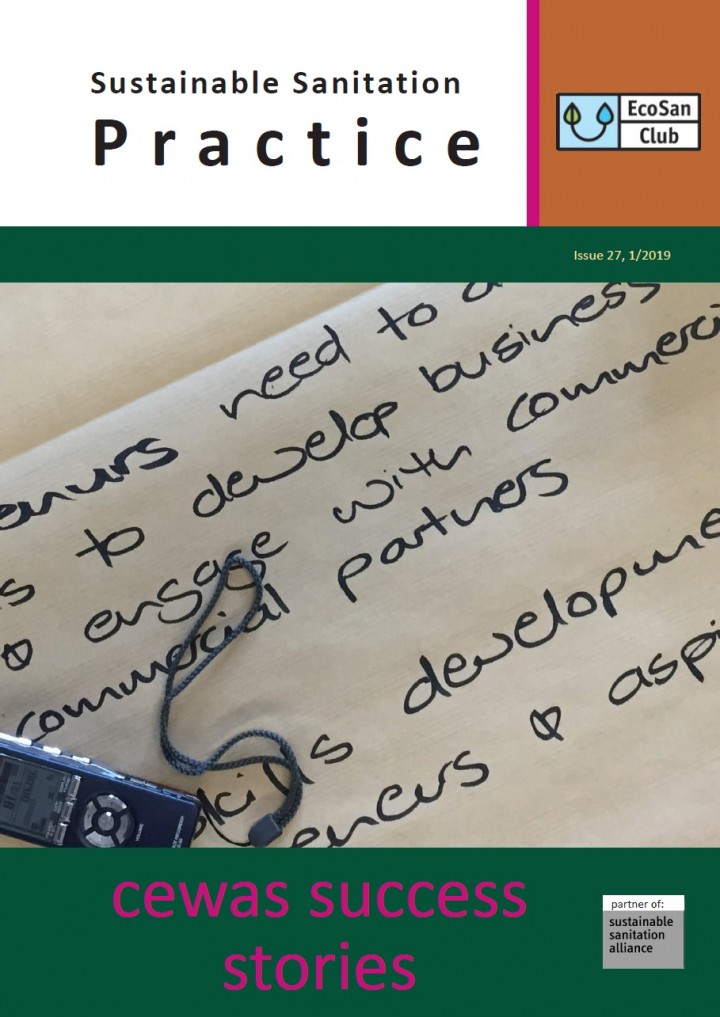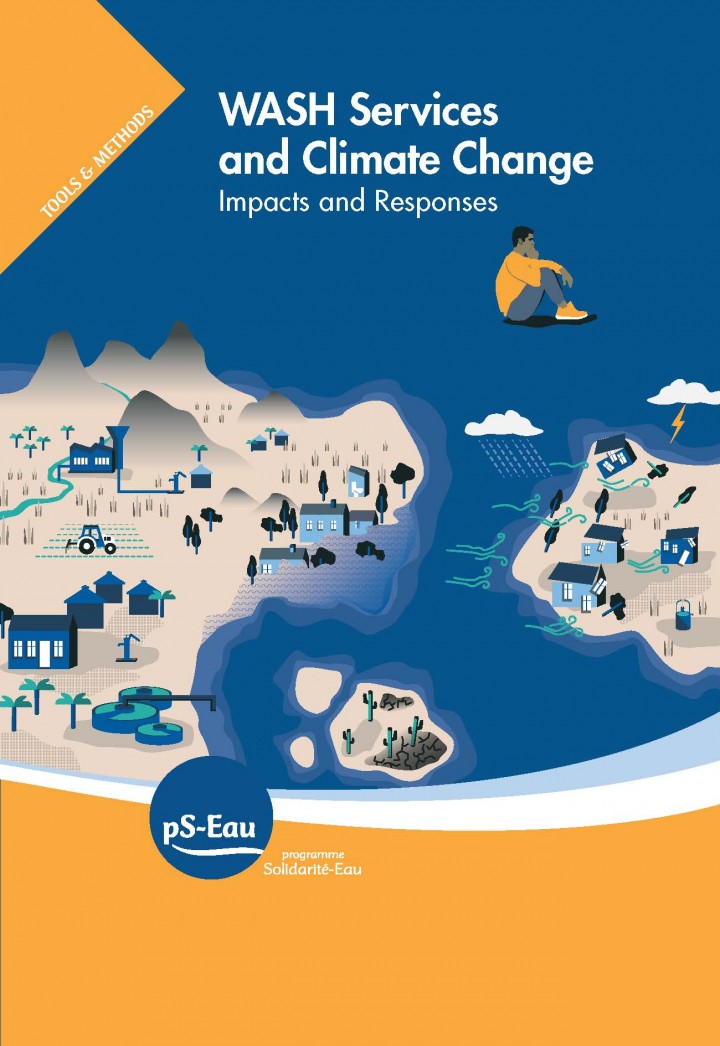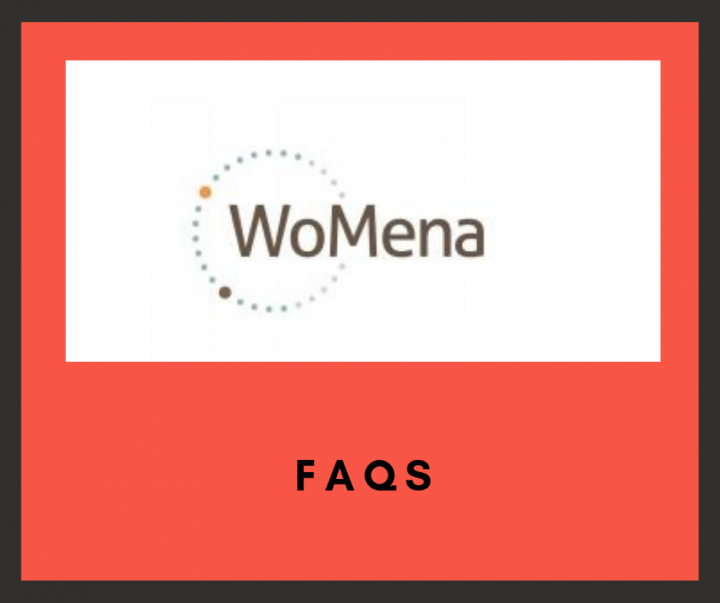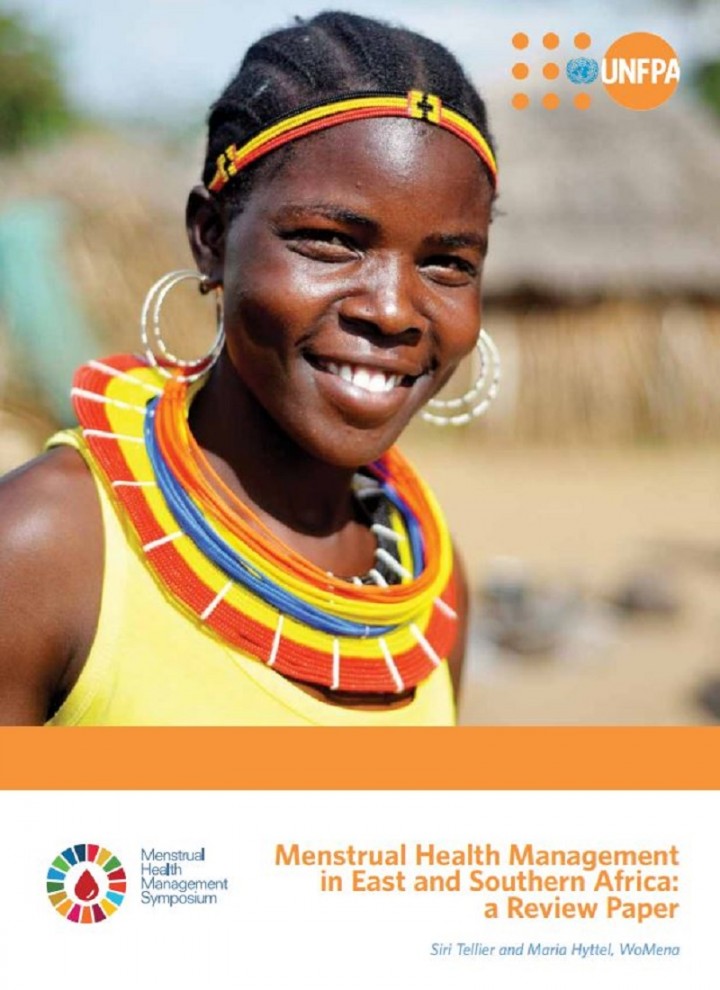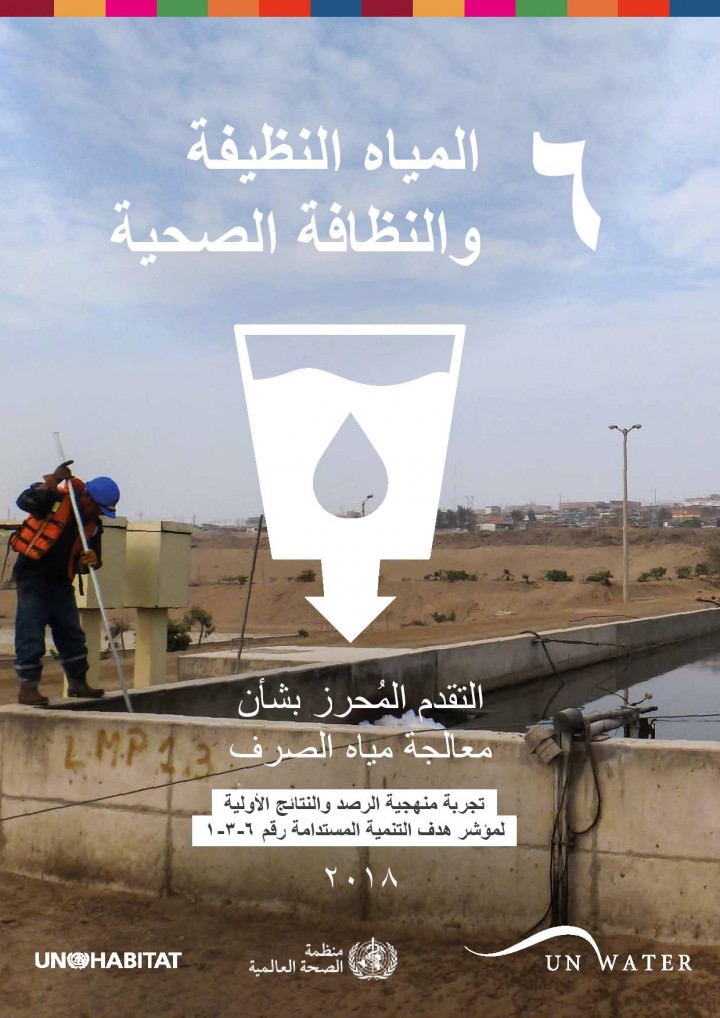جوفانا دودوس - مستشار الصحة العامة، إدارة الخبرة والدعم، قطاع المياه والصرف الصحي والنظافة العامة، منظمة العمل ضد الجوع فرنسا (2017) التغذية والمياه والصرف الصحي والنظافة العامة (in Arabic) Nutrition, Water, Sanitation and Hygiene
الدليل العملي لزيادة الأثر الغذائي من خلال دمج برامج التغذية والمياه والصرف الصحي والنظافة العامة للعاملين في المجالات الإنسانية والتنموية .يوضح هذا الدليل التشغيلي أهمية دمج البرامج الغذائية مع تدخلات المياه والصرف الصحي والنظافة العامة، كما يبرز أهمية تكييف تدخلات المياه والصرف الصحي والنظافة العامة لتشمل الاعتبارات الغذائية، بمعنى أن تصبح أكثر حساسية وارتباطا بالتغذية، وذات أثر أكبر عليها . لقد تم تطوير هذا الدليل […]
CARE International and WoMena (2018) Ruby Cups: Girls in Imvepi Refugee Settlement Taking Control
The Menstrual Hygiene Management pilot was conducted among 80 refugee women and girls, aged 15-30 years in Imvepi refugee settlement over four phases, namely (1) exploration, sensitization and training of trainers, (2) trainer trial period, (3) beneficiary training, and (4) menstrual cup (MC) trial period of beneficiaries and final evaluation. In addition to the fact that female received specialized training to become trainers, Role Model […]
WHO, NNN (2018) WASH and Health working together A ‘how-to’ guide for neglected tropical disease programmes
This toolkit provides step-by-step guidance to Neglected Tropical Disease (NTD) programme managers and partners on how to engage and work collaboratively with the WASH community to improve delivery of water, sanitation and hygiene services to underserved population affected by many neglected tropical diseases. The toolkit is based on real-life programme experience, which users can match to their needs and local context. It includes a series […]
WHO, UN-Water (2012) UN-Water Global Annual Assessment of Sanitation and Drinking-Water (GLAAS) 2012 Report (in Arabic, English, French and Russian) The Challenge of Extending and Sustaining Services
This second UN-Water GLAAS report presents data received from 74 developing countries, covering all the Millennium Development Goal regions, and from 24 external support agencies, representing approximately 90% of official development assistance for sanitation and drinking-water. 1. Sections 1 and 2 of the report describe the efforts of countries to be accountable and to plan and coordinate effectively. 2. Section 3 presents data on financial flows. 3. Section […]
WHO, UN-Water (2015) Investing in Water and Sanitation: Increasing Accsess, Reducing Inequalities GLAAS 2014 findings — Highlights for the Eastern Mediterranean Region
In this regional analysis, the UN-Water Global Analysis and Assessment of Sanitation and Drinking-Water (GLAAS) 2013/2014 country survey data from 11 Eastern Mediterranean Member States and territories, i.e. countries, are presented along with information provided by 23 external support agencies (ESAs). The 11 countries representing a population of 430 million in the WHO Eastern Mediterranean Region that participated in the GLAAS 2014 survey have increasingly […]
WHO, UN-Water (2015) Investing in Water and Sanitation: Increasing Accsess, Reducing Inequalities GLAAS 2014 findings — Highlights for the South-East Asia Region
This South-East Asia Regional Highlights includes analysis of implementation of national policies, sustainability, human rights and equity measures, monitoring, human resources, financing and external support. Ten out of the 11 countries in the WHO South-East Asia Region with a total population of 1.8 billion, participated in the GLAAS 2013/2014 reporting cycle. Overall, access to improved drinking-water and sanitation services in the South-East Asia Region are 92 […]
WHO, UN-Water (2016) Investing in Water and Sanitation: Increasing Access, Reducing Inequalities GLAAS 2014 Findings — Highlights for the Region of the Americas
The Region of the Americas Highlights includes analysis of implementation of national policies, sustainability, human rights and equity measures, monitoring, human resources, financing and external support. Sixteen countries out of 35 in the WHO Region of the Americas, with a total population of 550 million, participated in the GLAAS 2013/2014 reporting cycle. Overall, access to improved drinking-water and sanitation services in the Region of the Americas […]
WHO, UN-Water (2017) Financing Universal Water, Sanitation and Hygiene under the Sustainable Development Goals UN-Water Global Analysis and Assessment of Sanitation and Drinking-Water GLAAS 2017 Report
The GLAAS 2017 report focuses on the key role of financing in the water, sanitation and hygiene (WASH) sector. It is designed to provide a global perspective as the world embarks on achieving the SDGs, particularly SDG 6 relating to clean water and sanitation, which is essential to good health and well-being. It also provides country-specific data for governments to use as they plan investments […]
SanCop, Oxfam (2018) 22nd SanCoP meeting: Financing Sustainable Sanitation
The 22nd meeting of the UK’s Sanitation Community of Practice was held on the 26th of November 2018 at Oxfam House in Oxford. The aim of the event was to discuss with the participants the needs and potentials of financing sanitation. The challenges of finding funding sources, data acquisition, correct understanding of terminology, financial sustainability, and equitable service provision were examined. An engaged audience discussed […]
Langergraber, G., Lechner, M. (2019) Sustainable Sanitation Practice cewas Success Stories
Articles in this issue: - Building Viable Business Models for Small and Medium-sized Enterprises; Louise Carpentier and Martin Wafler - Eco Solutions Forge; Bogdan Popov - SR3 INVENT sustainable projects and businesses in Ecuador; Stefan Breitenmoser - SOIL - Building a Sustainable Citywide Sanitation Service; Natalie Miller and Leah Page Jean - Youth-Led Sustainable Sanitation in the MENA region; Kareem Hassan - The Urinal […]
pS-Eau (2018) WASH Services and Climate Change (in English and French) Impacts and Responses
Climate change and its impacts can be seen in many regions around the world and is having a major effect on the large water cycle, resulting in rising sea levels, disrupted seasonal rainfall patterns, a rise in average global temperatures, droughts, heatwaves and more frequent extreme weather events. These climate-related hazards have repercussions for the availability and continuity of water and sanitation services. Existing vulnerabilities caused […]
SFD Promotion Initiative (2019) SFD Review Procedure
The five step Review Procedure developed by the SFD Promotion Initiative ensures standardization of all the SFDs published on the SFD Webportal. We will be happy to provide you with feedback on your draft SFD Report. A member of the pool of experts will provide you with comments on your assessment and guide you through the quality check to finalize your report. Once done, you […]
SFD Promotion Initiative (2019) SFD Report Templates and Guidance Documents
For help with writing your SFD report or your SFD Thinking, you can use the templates: - SFD Report Template - SFD Lite Report Template - SFD Thinking Template For more support, the Guidance Notes can be consulted. These documents were produced under the SFD Promotion Initiative and have been reviewed after being field-tested in more than 40 cities in Africa, Asia and Latin America. The results of this project […]
WoMena (2018) WoMena FAQs: Is there any connection between menstrual cups and infections?
WOMENA SUMMARY AND RECOMMENDATIONS Many women develop urogenital infections, such as bacterial vaginosis or yeast infections, at some point in their life. Prevalence rates of 20-30% or more have been documented in both high-, middle- and low-income countries. Many infections are asymptomatic, meaning that those who have the infection do not know. Menstruation is a normal, physiologic process that does not, by itself, cause infection. However, the products […]
Polak, M., Ziegler, D., Bockelman, D., Schmidt, M., Zimmermann, E. (2018) 40 Years of German-Jordanian Technical Cooperation in the Water Sector
In early 1967, the Hashemite Kingdom of Jordan was among the first Arab states to re-establish diplomatic relations with the Federal Republic of Germany, leading to the development of an ever since continuing development cooperation programme. In consequence, GTZ/GIZ has been supporting the Jordanian water sector in tackling its many challenges for over 40 years: Between 1975 and 2016, a total of 30 projects were […]
von Sperling, M. (2016) Urban wastewater treatment in Brazil
The major focus of this report is the description and critical analysis of the main wastewater treatment processes used in Brazil. Special emphasis is given to small to medium size communities with populations lower than 100,000 inhabitants, which represent approximately 95% of the 5,570 Brazilian municipalities. In terms of coverage, around 40% of the sewage generated in Brazil is treated, with an estimated number of treatment plants in the order […]
Tellier, S., Hyttel, M. (2018) Menstrual Health Management in East and Southern Africa: a Review Paper
The review paper aims to identify possible linkages to SRHR-related issues, and to provide an overview of MHM policies and programs in the ESA region, with a focus on education, school and community-based sexuality education, WASH, sexual and reproductive health, workplace support and humanitarian programming, as well as opening up the discussion regarding marginalized groups of women and girls such as disabled, prisoners and transgender […]
UNDP (2018) What does it mean to leave no one behind? A UNDP discussion paper and framework for implementation
With the adoption of the 2030 Agenda, UN Member States pledged to ensure “no one will be left behind” and to “endeavour to reach the furthest behind first”. This paper advances a framework that governments and stakeholders can use to act on their pledge in a way that enables and accelerates progress to achieve the Sustainable Development Goals (SDGs). It also seeks to inform the manner […]
Mateo-Sagasta, J., Marjani Zadeh, S., Turral, H. (2018) More people, more food, worse water? A Global Review of Water Pollution from Agriculture
We need a much better understanding of the causes and effects of agricultural water pollution as well as effective means to prevent and remedy the problem. In the existing literature, information on water pollution from agriculture is highly dispersed. This repost is a comprehensive review and covers different agricultural sectors (including crops, livestock and aquaculture), and examines the drivers of water pollution in these sectors […]
منظمة الصحة العالمية وبرنامج الأمم المتحدة للمستوطنات البشرية (2018) Water and Sanitation (6) (Arabic) المياه النّظيفة و المياه الصّحيّة
إن توافر مياه نقية ويسهل الحصول عليها بالنسبة للجميع هو جزء أساسي من العالم الذي نريد أن نحيا فيه. وتوجد مياه عذبة كافية على كوكب الأرض لتحقيق هذا الحلم. ولكن نتيجة لسوء البرامج الاقتصادية أو لضعف البنية التحتية يموت كل سنة ملايين من البشر، معظمهم أطفال، من جراء أمراض مرتبطة بقصور إمدادات المياه والصرف الصحي والنظافة العامة. وشحة المياه وسوء نوعيتها وقصور الصرف الصحي هي عوامل […]
